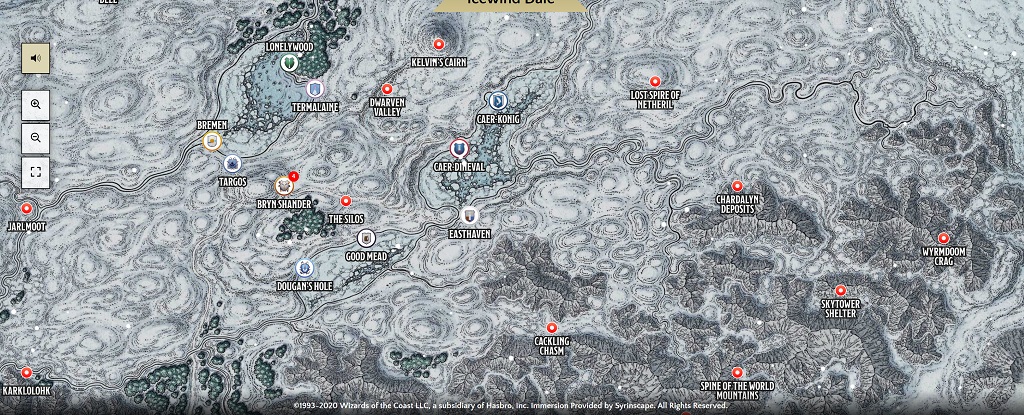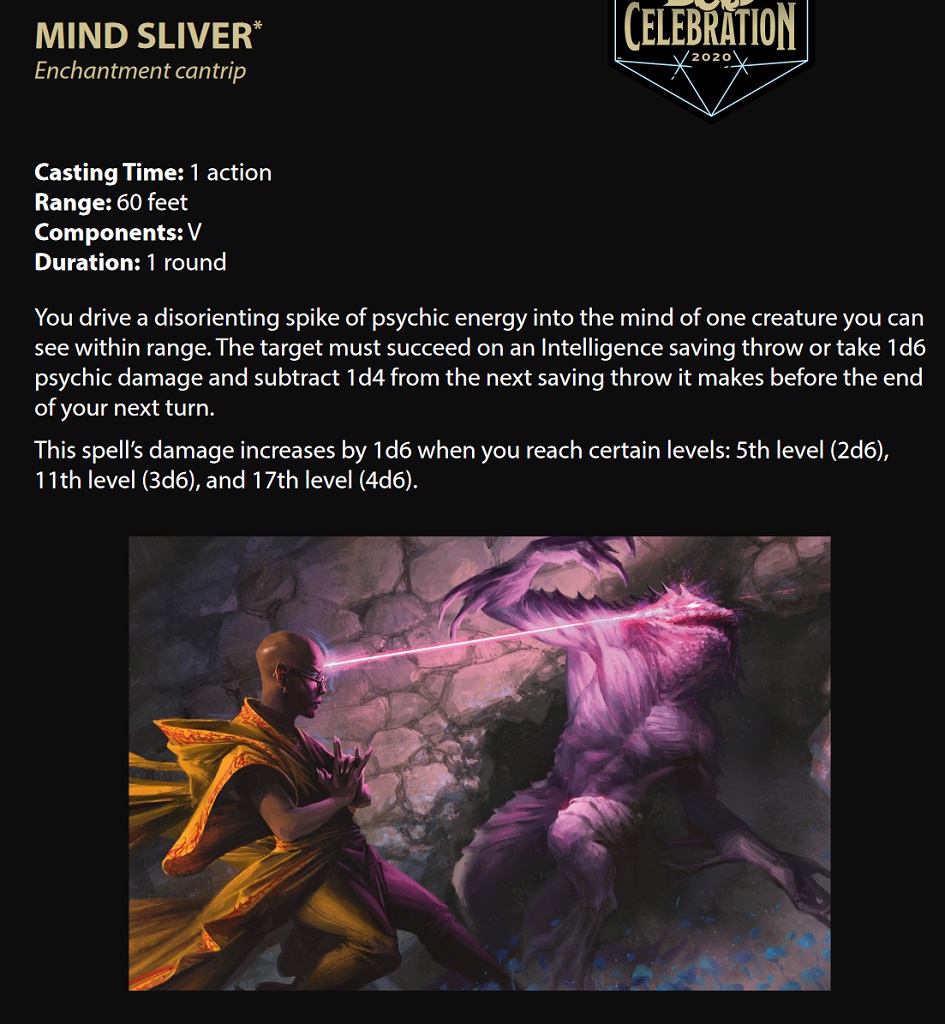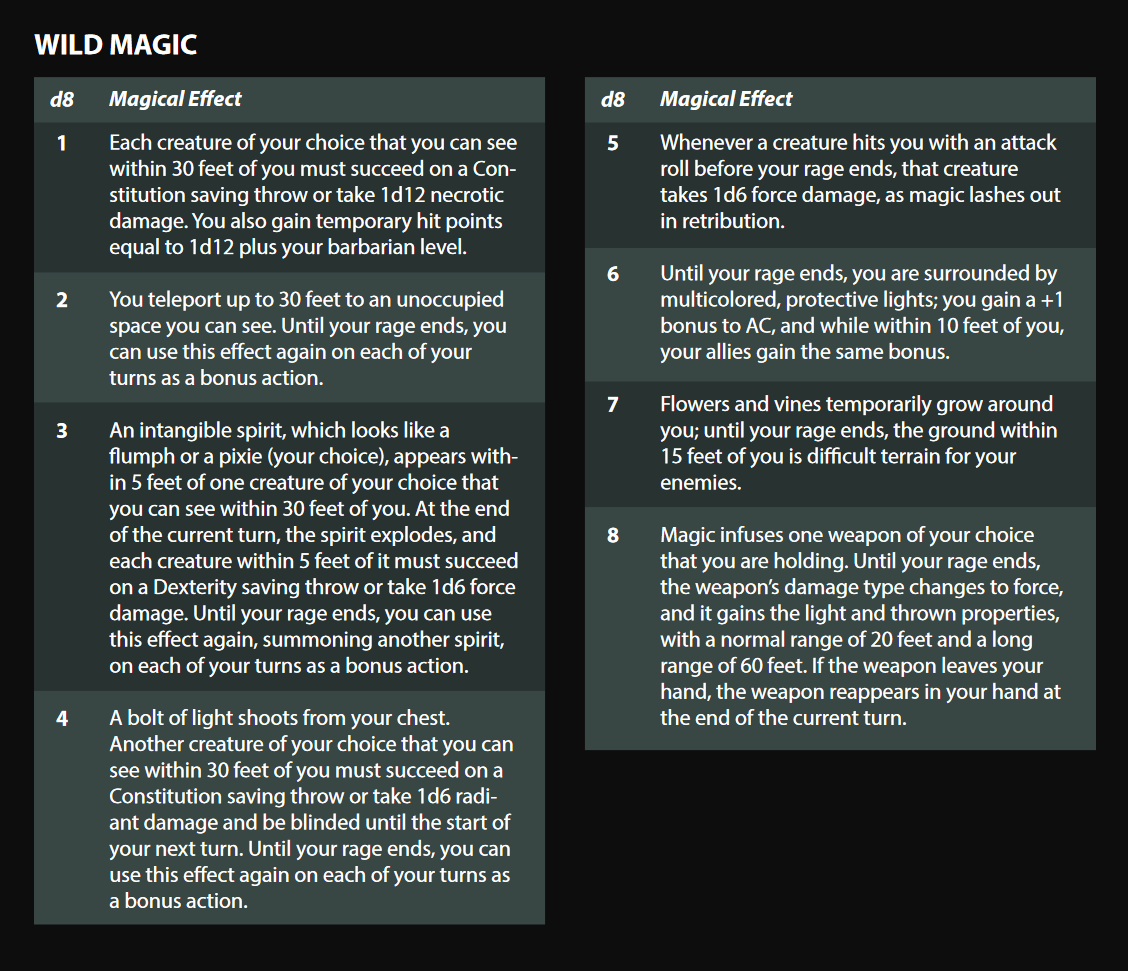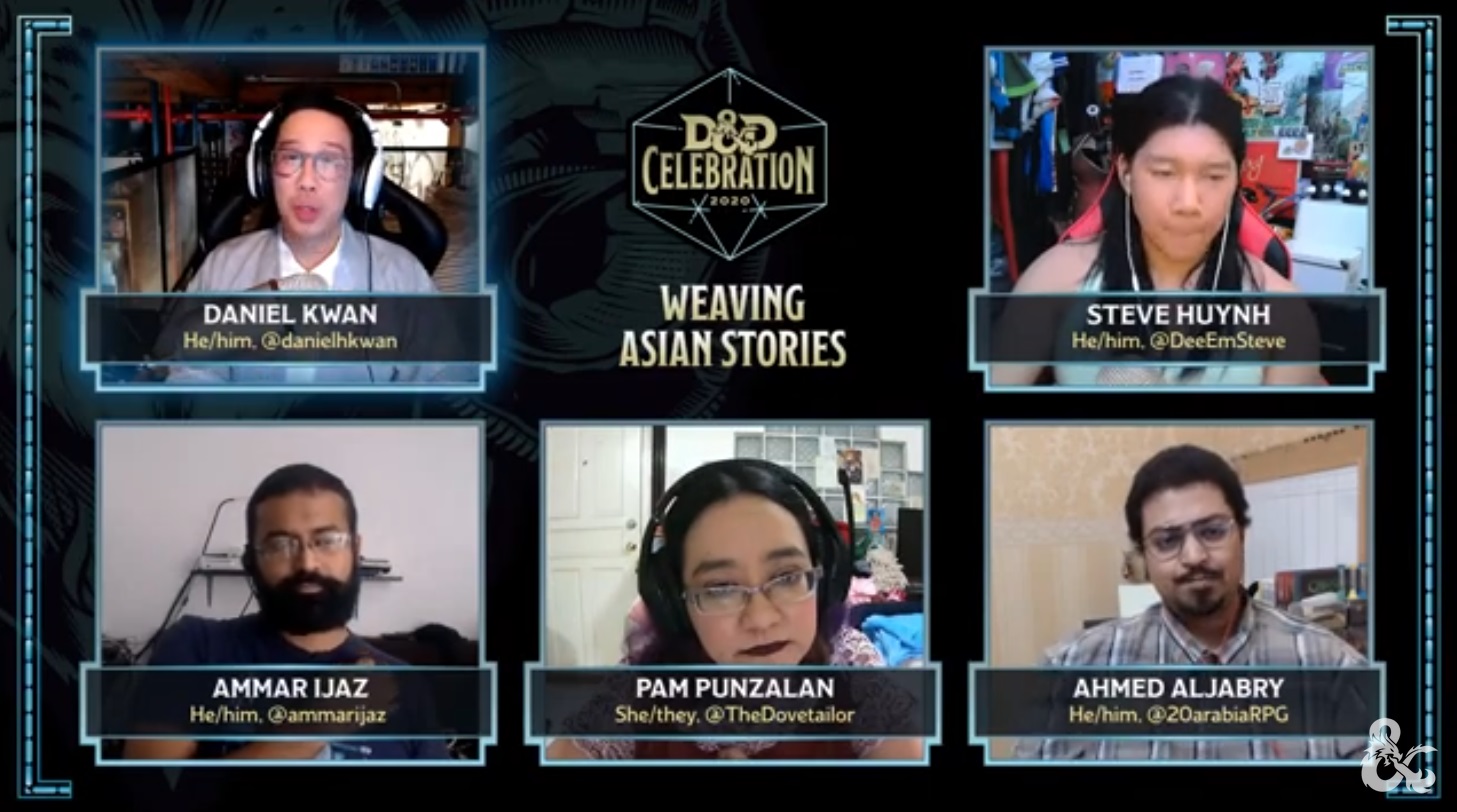D&D Centers Diversity, Inclusivity, Accessibility For Final Day Of Celebration
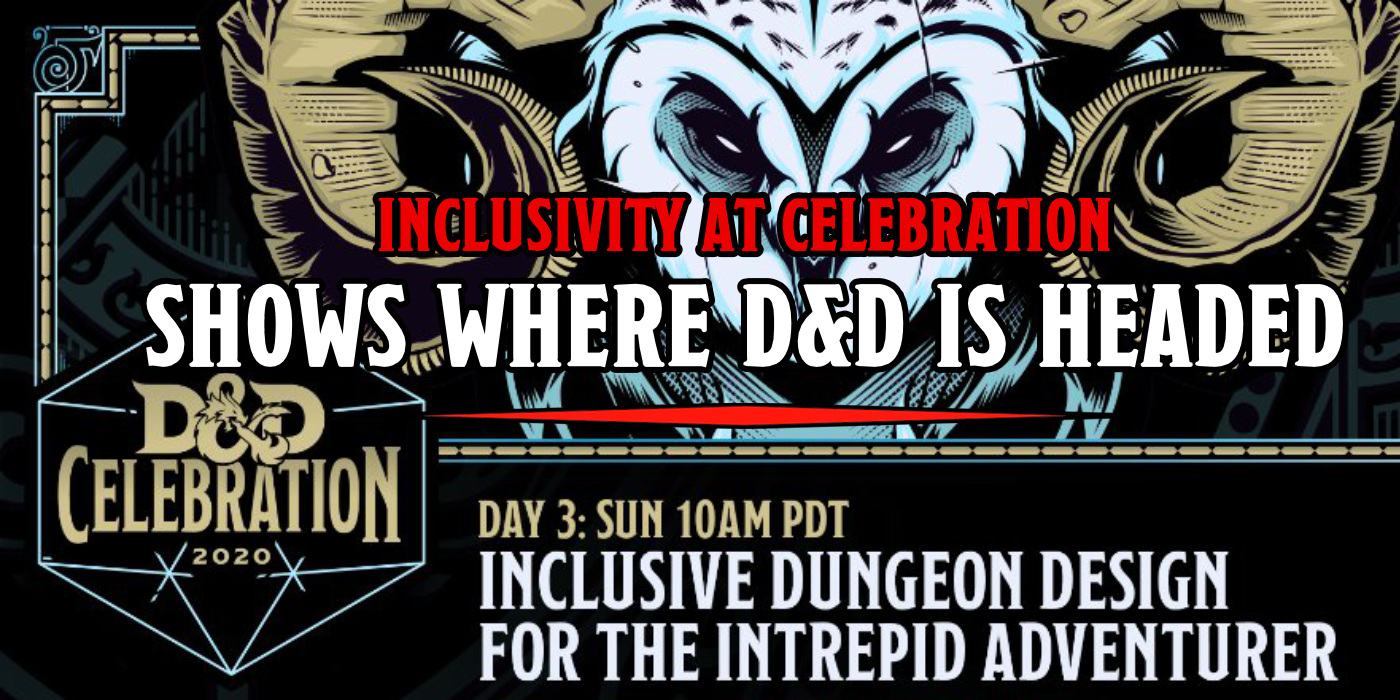

Wizards of the Coast put its most diverse, inclusive foot forward with yesterday’s Celebration, using inclusive panels to showcase where the game is headed.
D&D Celebration 2020 was a whirlwind of dungeons, dragons, dice, and diversity, all wrapped up in a massive virtual community celebration. Livestreamers hosted panels, DMs ran games on a variety of platforms, using everything from Zoom and some paper maps, to Fantasy Grounds and Roll20’s digital tabletops with all the stops pulled out, coordinated through the massive work of a team of dedicated DMs. Live games took players through the heart of Neverwinter in various forms.
And, of course, for those willing to brave the challenges of the Celebration Map, rewards aplenty waited. Including previews of new material included in Tasha’s Cauldron of Everything. We got a look at psionics in its new form–appearing as a source of power that fuels everything from subclass features to Wizard spells, rather than a set of separate rules:
We also were able to preview two of the subclasses that will appear inside the book, the Wild Soul Barbarian and Genie Warlock Patron, one of which had seen a significant overhaul from its last appearance.
But it wasn’t all fun and games this weekend. As much as WotC wanted to hype up their new adventure, they also took steps to address some of the growing controversies in the community. Issues of accessibility both in and out of the fiction, as well as representation and diversity of stories, have been hot button issues for a while now. Last month, when a designer wrote a set of rules for a free Combat Wheelchair, the community split itself into those who saw this piece of gear and thought oh that’s cool or at last a chance to play a character like me and have them be seen as a hero, and those who saw a free, optional magic item and took it upon themselves to point out how unrealistic it is, while harassing its creator with insults and death threats for more than two solid weeks.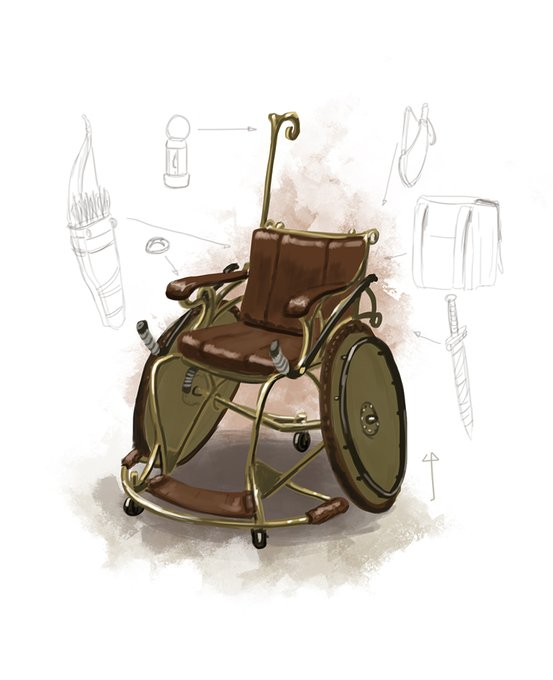
Not exactly the behavior of heroes, but it takes all kinds. And prior to this, WotC came under fire for continuing to profit from the sale of old, harmful material like Oriental Adventures and Al-Qadim, two old-school modules that draw on reductive racial stereotypes to peddle “exotic adventure” to white folks. It’s not the first time WotC has had to reckon with problematic problems in its past, but this time, it came not long after their big Diversity Statement, and now we’re starting to see more than just the occasional rules tweak from WotC in response.
Notably, two of the panels on the final day of D&D Celebration shone a spotlight on issues of diversity, inclusivity, accessibility, and representation, giving marginalized creators a chance to speak, while also making some fairly solid moves to back WotC’s commitment to creating a more inclusive community. The first, featured below, is all about designing an inclusive dungeon.
Details like accessibility options for disabled characters can add secret ways of passing information to characters, leaning into senses other than sight can help flesh out an environment in exciting ways. Even something as simple as having a magical elevator in place of stairs offers variety in the environment and can help increase immersion.
What’s more, they designed a higher level adventure to highlight that easy accessibility doesn’t mean easy mode. Naturally, it was only a matter of time before someone wondered if they should have had an abled person on the panel about accessibility and inclusivity:
Actual comment on the panel video from today:
Advertisement“…I’m more concerned that their [sic] wasn’t an able-bodied person on this panel than I am that there was no male representation.”
🙄
— Jennifer Kretchmer (@dreamwisp) September 21, 2020
The panel is full of all kinds of insights and rules proposals to more accurately represent the whole spectrum of humanity. The spell Blindness, for instance, might be a range of effects, going from total blindness to a lesser penalty. Mechanics informing story, fueled by the creativity of a variety of perspectives.
That’s also one of the themes of the other big panel talking about inclusivity–Weaving Asian Stories, which featured folks from Asians Represent, including Daniel Kwan and Steve “DM Steve” Huynh, Ammar Ijaz, Pamela Punzalan, and Ahmed Aljabry. In Weaving Asian Stories, they talk about the various ways you might weave Asian stories in your own games.
Throughout the course of the panel, the panelists go through ways to include cultural elements without making your game feel disparaging of the culture you’re borrowing from. Advocating nuance and variety, the panel didn’t shy away from a critique of WotC as well as ways to carve a path forward, proving that you can make a panel about inclusivity without just saying everyone is playing D&D wrong, which, sadly, is still a fear many people have, judging from the comments:
Here we go! It took less than 6 hours for a D&D community member to call me a fascist for fighting against racism. They don’t want us to speak up. This is why our work is so important. But hey, they have a hashtag in their profile that conveniently tells me to block on sight. pic.twitter.com/JCXI41I6Di
— Daniel Kwan is writing a new campaign setting (@danielhkwan) September 21, 2020
If WotC wants to continue its push for diversity, accepting critique is a part of it. But so is addressing the more vehemently anti-inclusive elements in the community. They’re there, but, as these panels show, the game is headed ever forward.
What do you think of the panels? Of the new reveals? Let us know in the comments!

